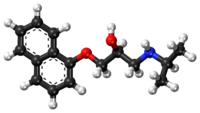
Photo from wikipedia
Saffron is commonly used in traditional medicines and precious perfumes. It contains pharmacologically active compounds with notably potent antioxidant activity. Saffron has a variety of active components, including crocin, crocetin,… Click to show full abstract
Saffron is commonly used in traditional medicines and precious perfumes. It contains pharmacologically active compounds with notably potent antioxidant activity. Saffron has a variety of active components, including crocin, crocetin, and safranal. Oxidative stress plays an important role in many cardiovascular diseases, and its uncontrolled chain reaction is related to myocardial injury. Numerous studies have confirmed that saffron exact exhibits protective effects on the myocardium and might be beneficial in the treatment of cardiovascular disease. In view of the role of oxidative stress in cardiovascular disease, people have shown considerable interest in the potential role of saffron extract as a treatment for a range of cardiovascular diseases. This review analyzed the use of saffron in the treatment of cardiovascular diseases through antioxidant stress from four aspects: antiatherosclerosis, antimyocardial ischemia, anti-ischemia reperfusion injury, and improvement in drug-induced cardiotoxicity, particularly anthracycline-induced. Although data is limited in humans with only two clinically relevant studies, the results of preclinical studies regarding the antioxidant stress effects of saffron are promising and warrant further research in clinical trials. This review summarized the protective effect of saffron in cardiovascular diseases and drug-induced cardiotoxicity. It will facilitate pharmacological research and development and promote utilization of saffron.
Journal Title: Oxidative Medicine and Cellular Longevity
Year Published: 2021
Link to full text (if available)
Share on Social Media: Sign Up to like & get
recommendations!